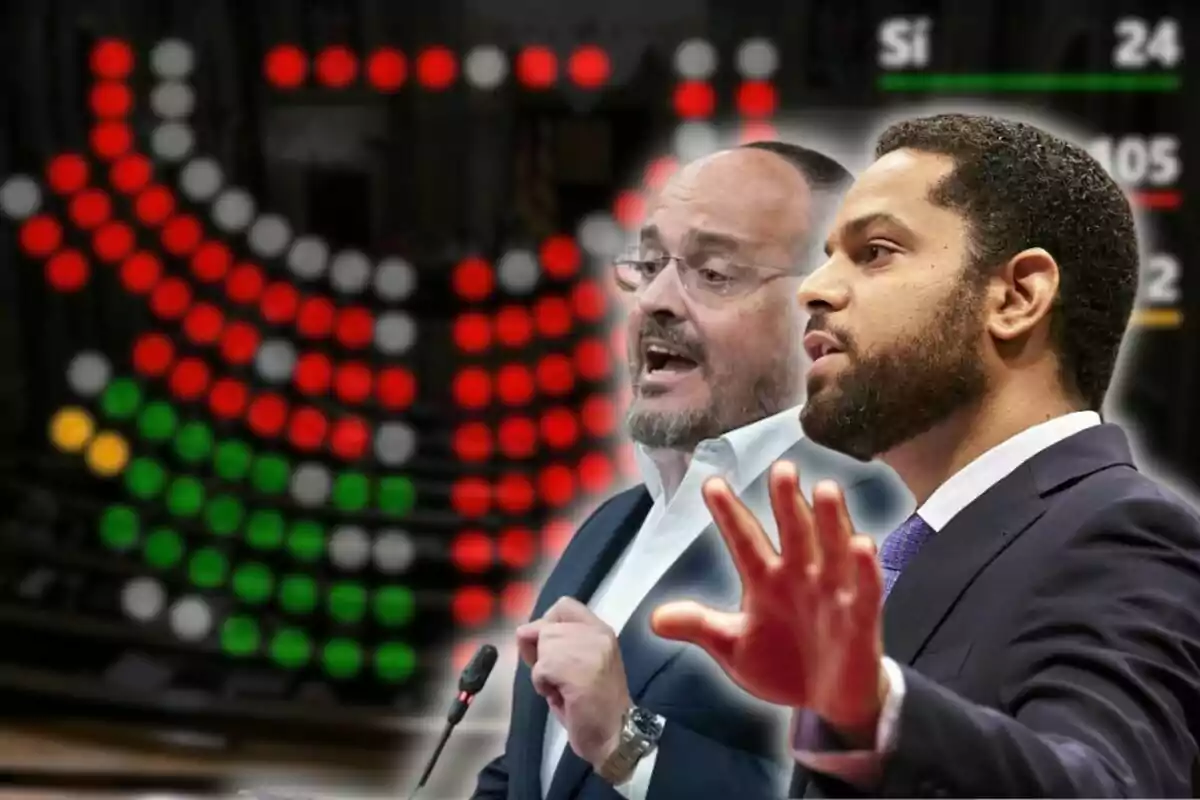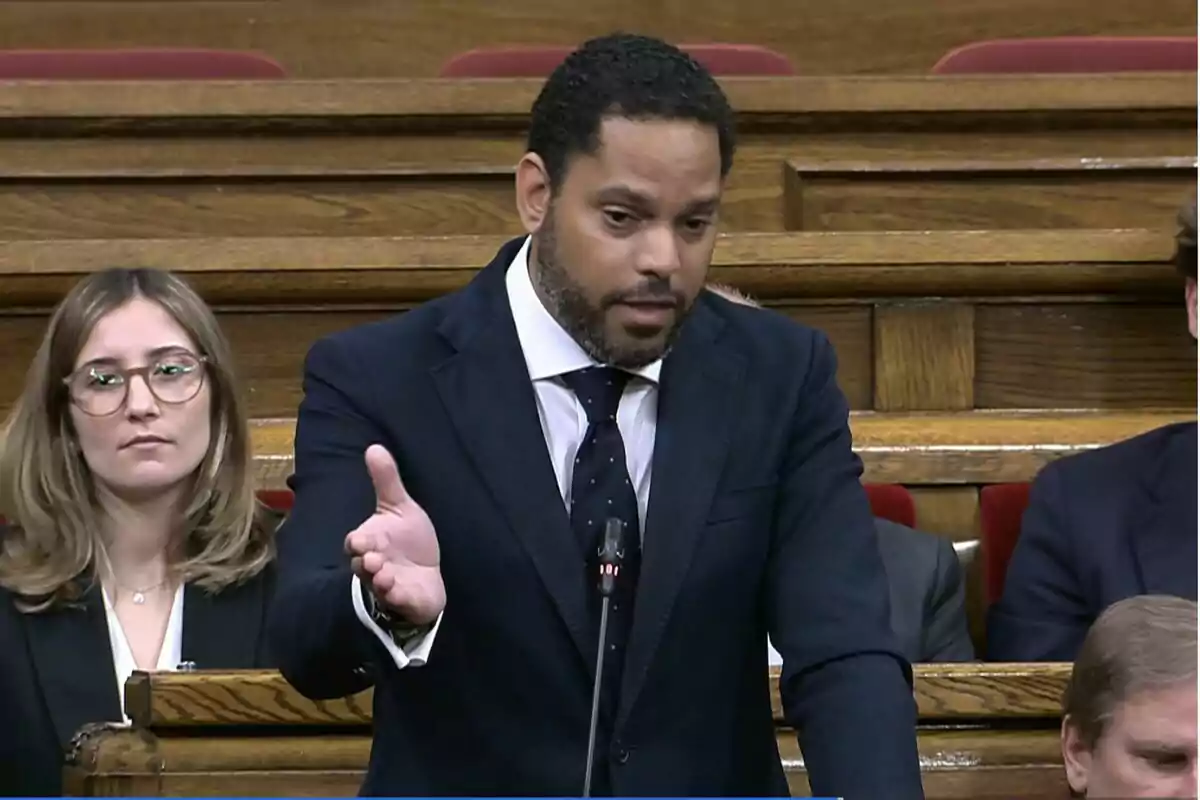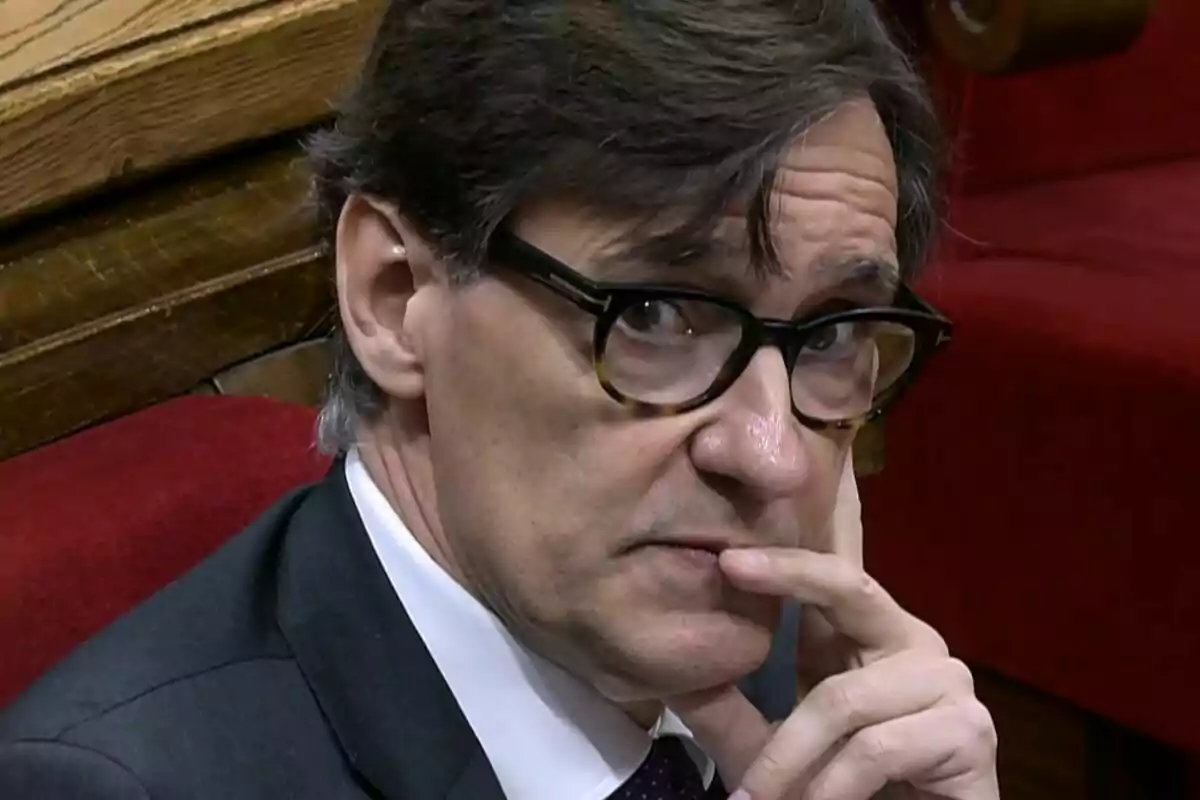
PSOE's crisis unites parties of the cordon sanitaire in the Parliament of Catalonia
Junts, ERC, Comuns, and CUP have vetoed Salvador Illa's appearance proposed by PP and Vox
PP requested the alteration of the order of the session so that Salvador Illa could give explanations about the corruption scheme involving PSOE. The conservatives requested explanations for his appearance in the UCO report. Vox joined the request, which forced the president of the chamber, Josep Rull, to submit the issue to debate and vote.

This highlighted the fragmentation of Parliament between PP and Vox, and the rest of the chamber. The corruption crisis threatening progressive governments has accentuated this reality. PSC, Junts, ERC, Comuns, and CUP voted against Salvador Illa's appearance.
The first to speak was Laia Estrada, from CUP, who referred to the "anti-fascist pact" to justify her rejection of Salvador Illa's appearance. "We won't vote for any proposal coming from the far right," she stated. "But if Salvador Illa voluntarily on another occasion considers it interesting to take a position on this issue, we'll be perfectly fine with it," was CUP's position.
Comuns also showed their unwavering support for Salvador Illa against PP and Vox. In fact, David Cid didn't request explanations from Illa but did recall cases affecting PP such as Púnica and Gürtel. "We will be relentless against corruption, but we won't play along with the far right and their little followers, which is what you are," he said, addressing PP.
Junts will register a request for appearance
ERC used the same strategy, trying to save Salvador Illa by attacking PP. "We will never go hand in hand with PP and Vox," said spokesperson Esther Capella. She also said that Esquerra has never had "cases of this kind." This caused laughter in the chamber because many remembered the corruption in DGAIA.
Junts justified their opposing vote because "we won't participate in the Spanishization that is always sought for this chamber." Spokesperson Mònica Sales distanced herself from the war between PSOE and PP. She did announce, however, her intention to register a request for the President of the Generalitat to appear "to find out if the alleged corruption affects Catalonia."
The socialists argued that the request is not appropriate "because the events referred to are unrelated to President Illa." They criticized those "who want to turn Parliament into a stage for their opportunistic maneuvers." Spokesperson Elena Díaz said that the fight against corruption is shown "by acting forcefully and expelling those responsible."
The sanitary cordon grows stronger
Beyond the specific proposal, it served to highlight the solidarity among progressives and pro-separatism supporters in the face of the crisis threatening their majorities. All the parties that in one way or another support PSOE and PSC have been repeating the same idea these days. Corruption is to be criticized, but the real danger is the rise of the far right.

The parties are using fear of the far right as a justification to whitewash corruption. In reality, they're protecting their interests, which in one way or another are linked to President Pedro Sánchez's survival.
This time, all the parties, from CUP to Junts, have used the sanitary cordon to block the proposal for Salvador Illa's appearance. Their main fear is that PP and Vox will capitalize on the alleged corruption crisis. This has reinforced the sanitary cordon just at the moment when parties like Junts had shown their reservations.
Ultimately, it proves that the far right remains the main mobilizing element for the left and the pro-separatism movement to avoid their collapse. This is also shaping the different approaches to the alleged corruption crisis affecting the socialists.
More posts: